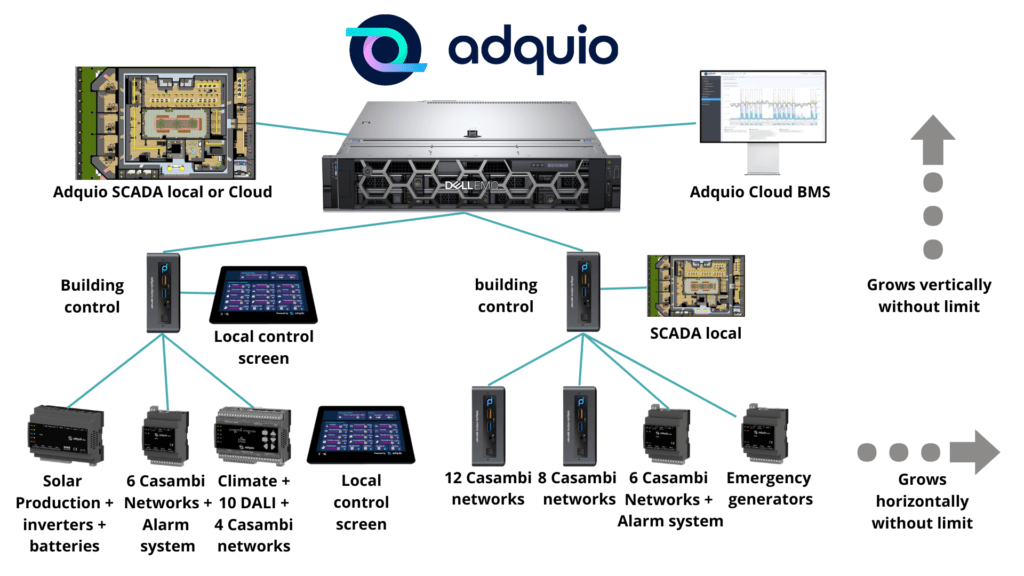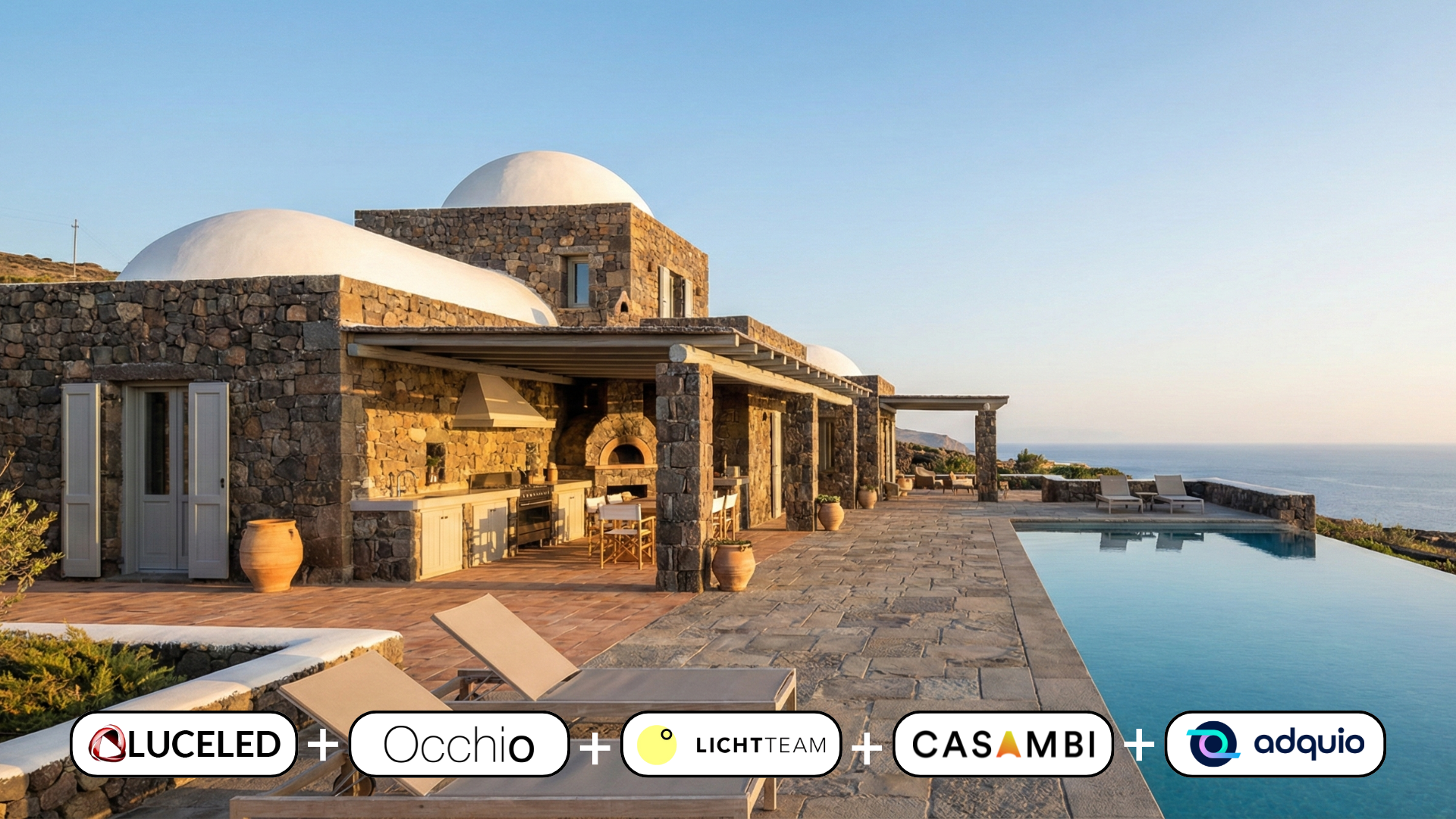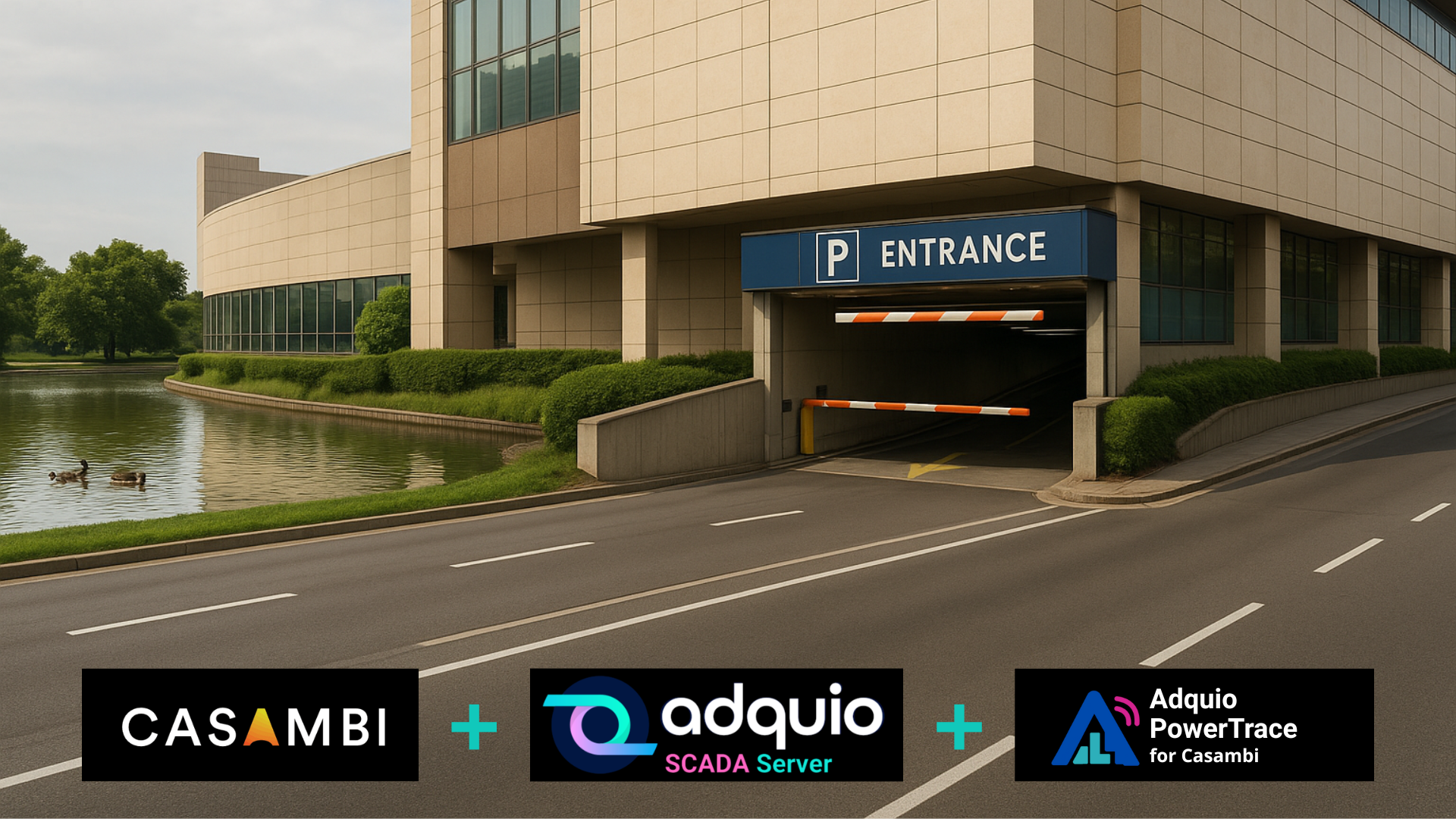Introduction:
Today, in systems management, versatility, and scalability are crucial aspects to adapt to the changing needs of any project, whether it is a small installation or the control of an entire city. In this article, we will explore how Adquio, through its standard protocols and communication between controllers, offers a flexible solution that allows the creation of architectures of any size.
Adquio and its Protocols:
Adquio stands out for its ability to communicate with a wide range of devices, whether they are controllers of other brands, lighting systems, air conditioning, etc., using standard protocols. In addition, 485 bus integration allows you to interface with slave devices via protocols such as Modbus RTU and BACnet MSTP.
The Key: Communication between Controllers:
The cornerstone of Adquio’s flexibility lies in the communication between controllers through its proprietary protocol. This feature allows the creation of infrastructures of any size, where each controller processes and filters important data before sending it to the higher level. This flexibility translates into the ability to design customized architectures, from two-tier structures to more complex systems with more tiers, depending on the needs of the project.
Local Control and Flexibility:
Each control level offers the possibility to have a local interface through Adquio control screens or even through a local SCADA system. Flexibility lies not only in the architecture, but also in the decision at which level data is sent to the Building Management System (BMS). Freedom of choice allows the level of detail to be adjusted according to specific needs.
Adquio Server: Power and Scalability:
At the top of the architecture is the Adquio Server, a full-featured server from Dell. This server is scalable, adapting to the complexity and specific needs of each project. It is essential to highlight that Adquio not only limits itself to creating architectures with its devices, but also offers the possibility of connecting existing systems, allowing to obtain important data for a global control.
Communication Efficiency:
Adquio’s controller-to-controller communication is designed for high efficiency. This approach ensures that there are no noticeable delays when using devices from other controllers. Each Adquio controller has the ability to share its devices, physical and virtual, with a controller (superior, or at the same level), which uses them as its own.
Simple configuration:
Implementing this efficient communication is surprisingly simple. On the controllers that will serve data, simply configure the device server by activating it and generating a user and password. Similarly, on the server side, generating a ‘Remote Adquio’ module and providing the connection data is a straightforward process.
Conclusions:
Adquio demonstrates its commitment to versatility and scalability in system control. From configuring custom architectures to connecting to existing systems, the platform offers a comprehensive solution. If you are looking for efficiency, flexibility and seamless control, Adquio is the obvious choice.
Dare to try any of our systems and discover true versatility in action!







